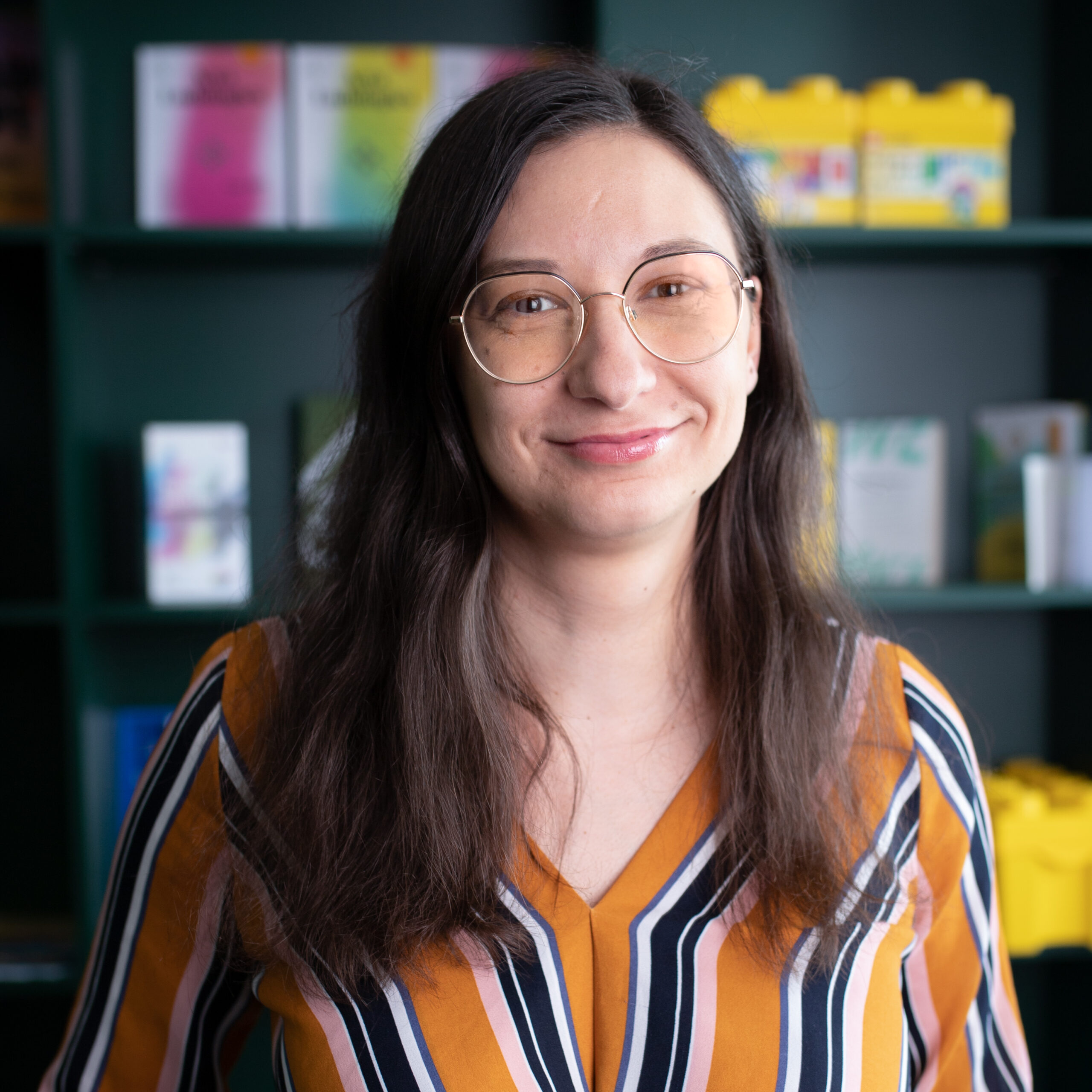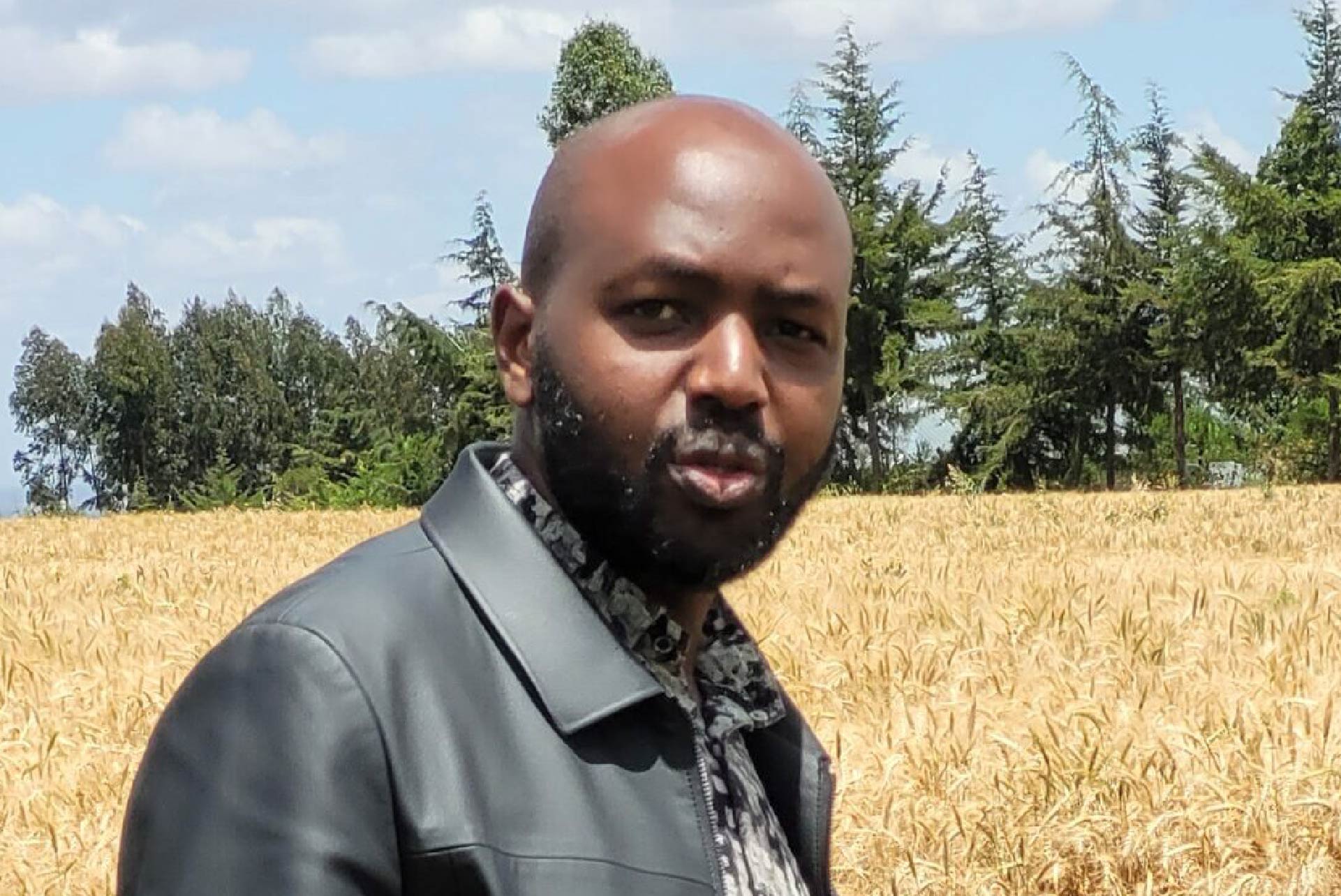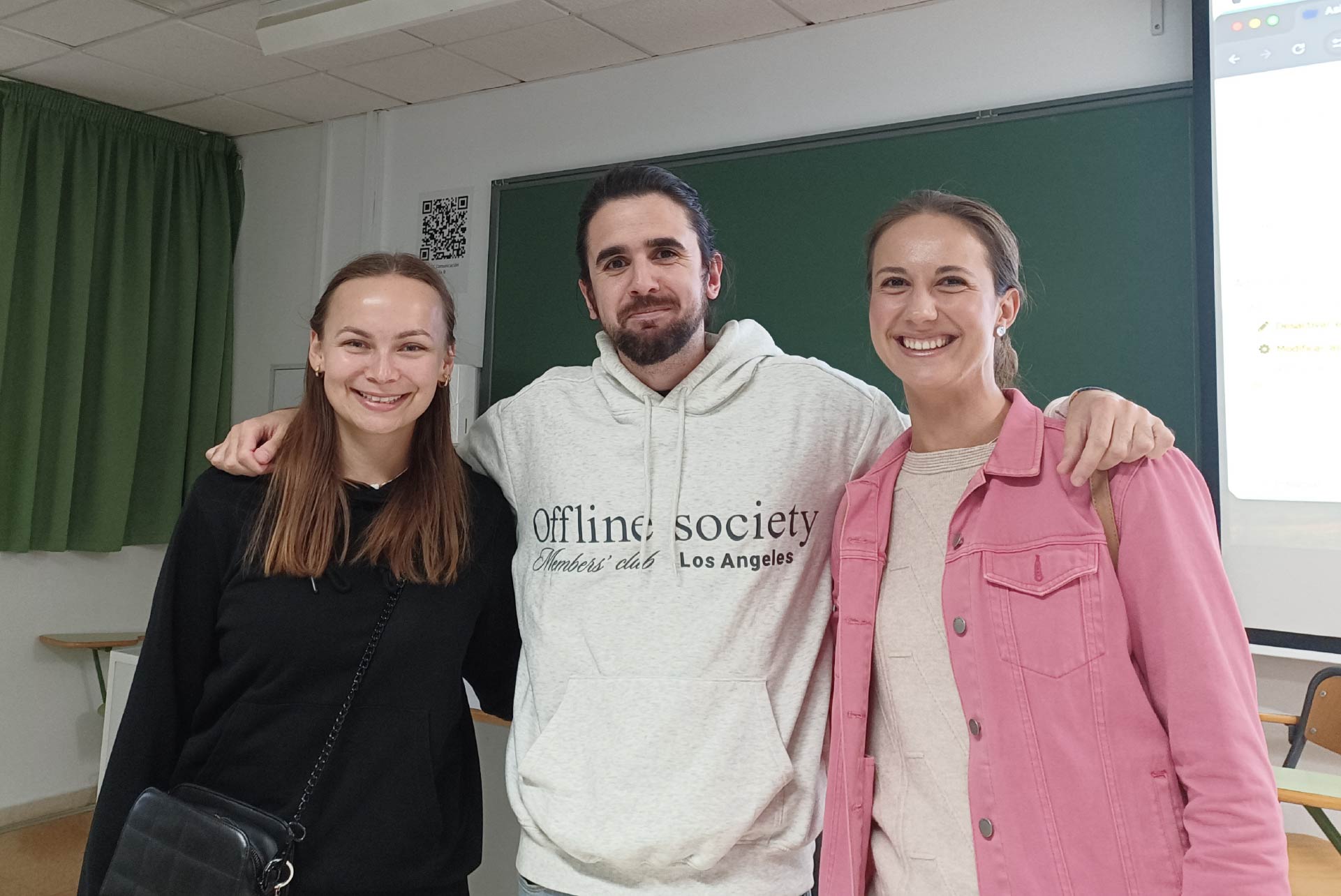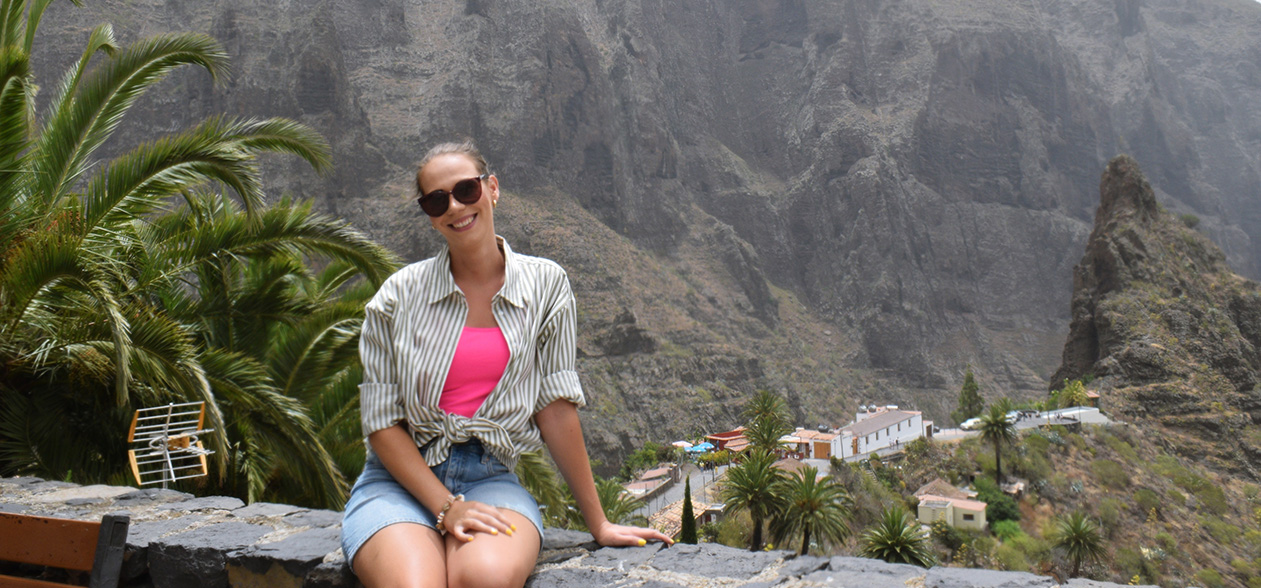
How to do an internship abroad? Graduate internship in Tenerife
Fresh graduate Petra took advantage of the time after completing her studies in marketing communication at the Faculty of Mass Media Communication and went on an internship through the Erasmus program. How she got there, how the internship went, and why it's worth it, you'll find out in the interview.
Why did you decide to go on an Erasmus internship?
I wanted to take advantage of this opportunity from school and try working abroad with people from all over the world. It seemed like a great experience that I could add to my resume and set myself apart from other graduates. At the same time, it was perfect timing, as I didn't have a full-time job or any commitments, just endless possibilities.
How did you choose the location and organization for your internship?
At first, I looked for opportunities in Malaga, because I had always wanted to visit that city. Unfortunately, I couldn't find anything there for the summer. So I gave up on the location and focused only on choosing an organization whose work interested me. I looked for vacancies on erasmusintern.org and LinkedIn. There are other platforms, but most of them require an entry fee.
What was the biggest challenge for you at the beginning?
Integrating into the team. I traveled to the internship completely alone, so the first few days were spent getting to know the environment and the people. Every day I had to communicate exclusively in English, which I also had to get used to. It was intense and mentally exhausting. The situation was made more difficult by problems with accommodation, which meant I had to move twice.
How did you manage accommodation, finances, and practical matters?
Fortunately, the company itself helped me with accommodation. They had reserved accommodation for their interns, which was significantly cheaper than if I had looked for it myself. My finances were provided by an Erasmus grant, but it is important to remember that the grant does not cover all living expenses. Therefore, I recommend that you also have your own savings. When it comes to transportation or visiting the doctor, don't be afraid to ask your colleagues. They will definitely be happy to help you with these practical matters.
What skills did you acquire or improve during your internship?
I think I improved my communication skills in particular. I often had to step out of my comfort zone, which made me more assertive and confident. It was also beneficial to see how and for what purposes AI is used in the company. Our boss is probably the biggest fan of this technology and introduced me to many new tools and ways to use them. And although it's not a skill, by the end I was so acclimatized that even the giant cockroach in the kitchen didn't scare me (laughs). An internship in a foreign country teaches you to survive these moments in life.
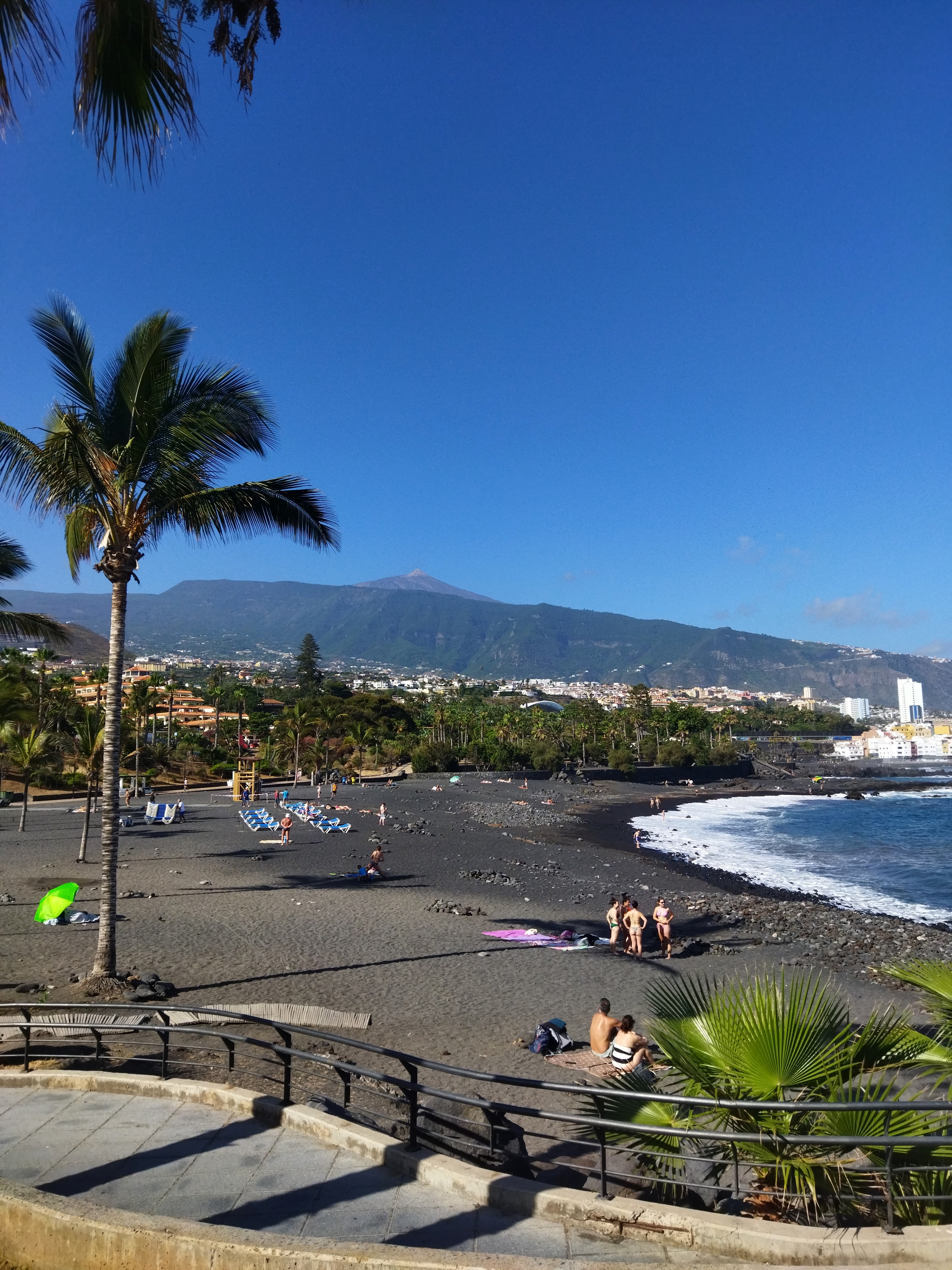
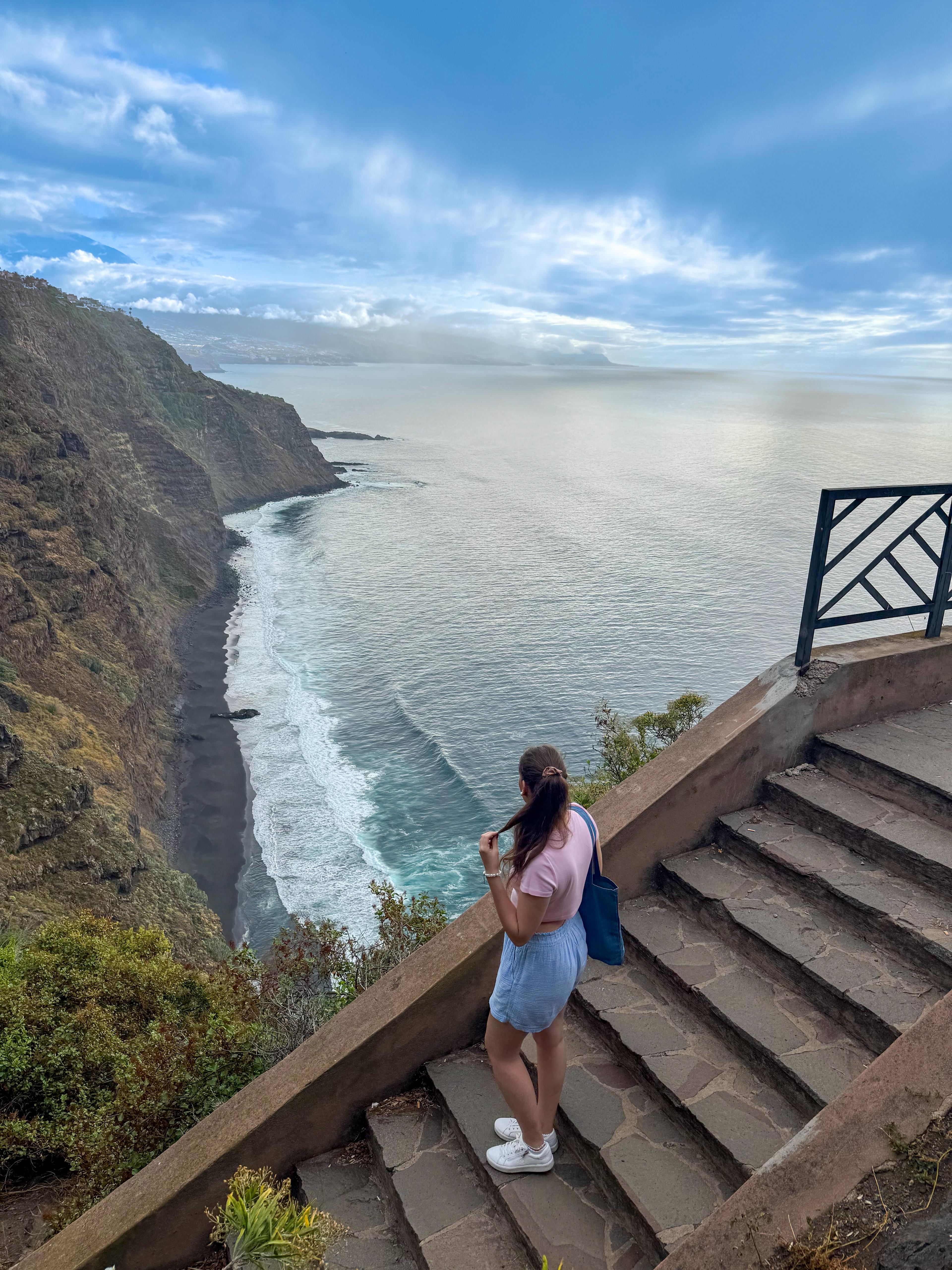
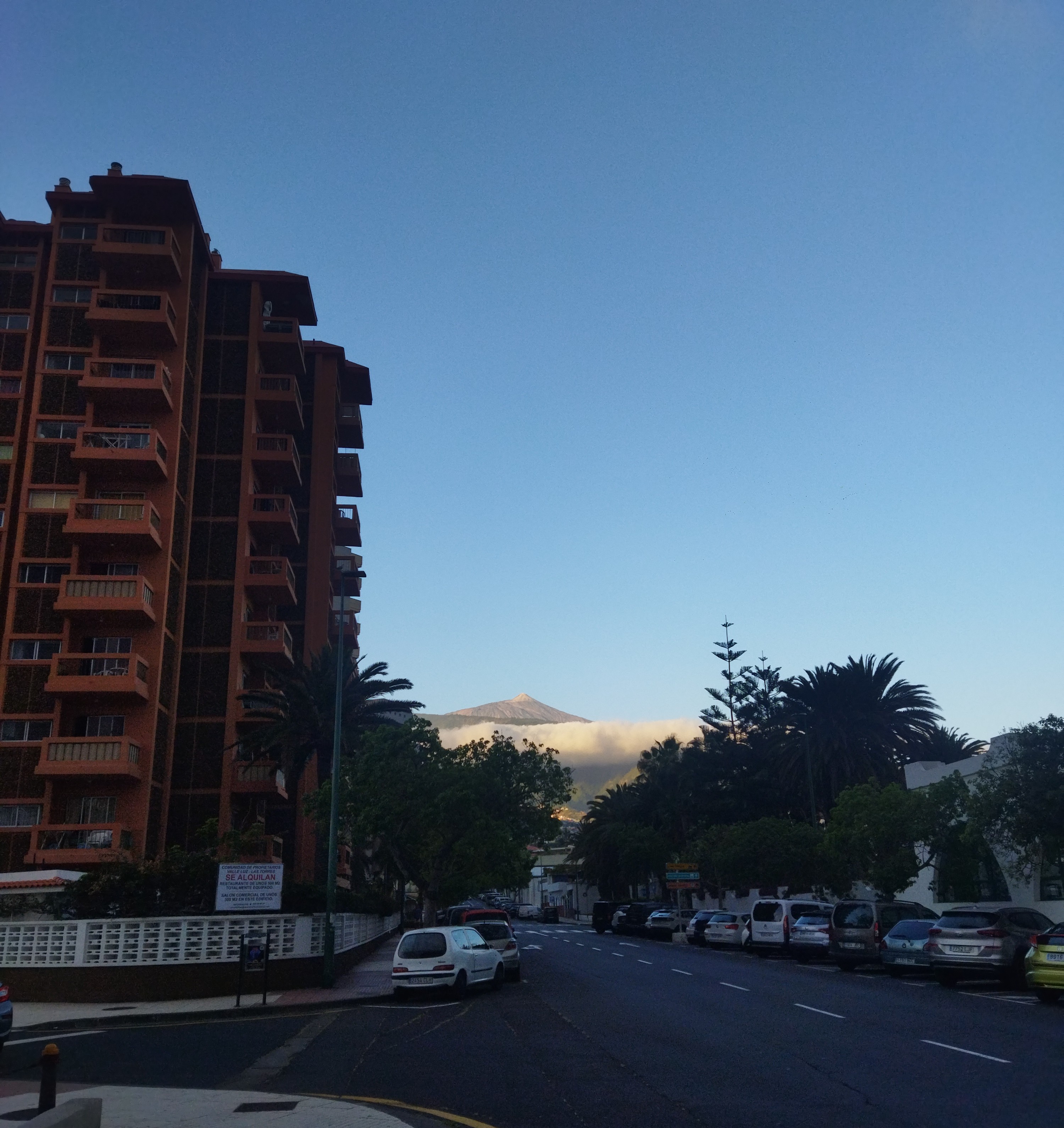
How did the internship help you in your future career or studies?
It definitely helped me improve my communication skills in English. I communicated with clients on a daily basis via email or in person, so if I get a job at an international company where this skill is necessary, it won't be completely new to me. Overall, I think I gained more experience and a better overview. A little advice for future interns – don't forget to ask your supervisor for a letter of recommendation at the end. You can use it later when looking for a job.
Can you name a specific project or task that you are proud of?
I did my internship at a Spanish language school in Tenerife, where in August we focused mainly on launching a new project for secondary school teachers and students. My passion for photography was noticed at work. That's why I often created content for the website and social networks, and now I was tasked with preparing photos for the new landing page. I approached interns from Austria who were working at a neighboring company at the time, and together we staged a "fake photoshoot." The photos turned out great, and I then used Canva to design an online brochure, which my boss was very happy with. I really enjoyed this task because I know I left something behind.
What surprised you most about the culture of the country you visited?
Probably their openness and natural friendliness. Everyone treats each other as if they have known each other for years, not like strangers. Whether it's a bus driver or someone you talk to at a local event or bus stop. Everyone looks at you with warm eyes and a smile on their face. We Slovaks are so reserved in this regard and keep our distance from others.
Although I have been to Spain several times, it was in Tenerife that I first encountered Canarian culture. The inhabitants of the Canary Islands live their own island life, where rules somehow do not apply. I have many funny stories about buses that skipped my stop, didn't show up at all, or stopped literally in the middle of nowhere. Every day on this island was an experience in itself.
What was your best experience during your internship?
My fondest memory is of my first coworking event. The language school where I worked also had coworking spaces for digital nomads. Every Thursday was coworking day, when we worked on the terrace in the morning, had lunch together, and played board games in the evening. That's where I met some great friends from Venezuela, Uruguay, and Italy. Since some only knew English and others only knew Spanish, communication was very funny and went half and half (laughter). We laughed the most while playing Taco, Pizza, Cat, Cheese, Goat. That's when I realized that once you click with someone, the language barrier is no obstacle at all.
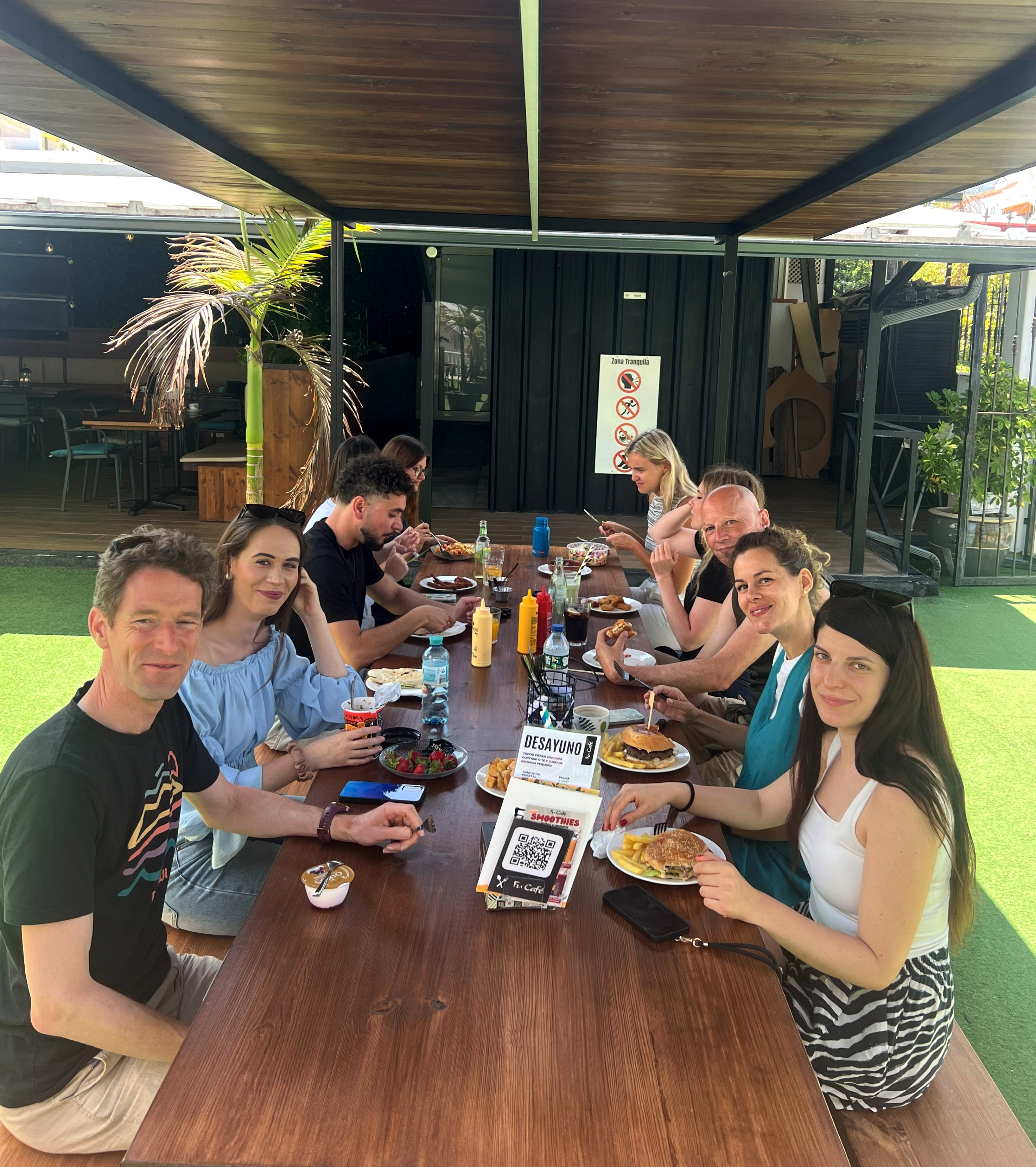
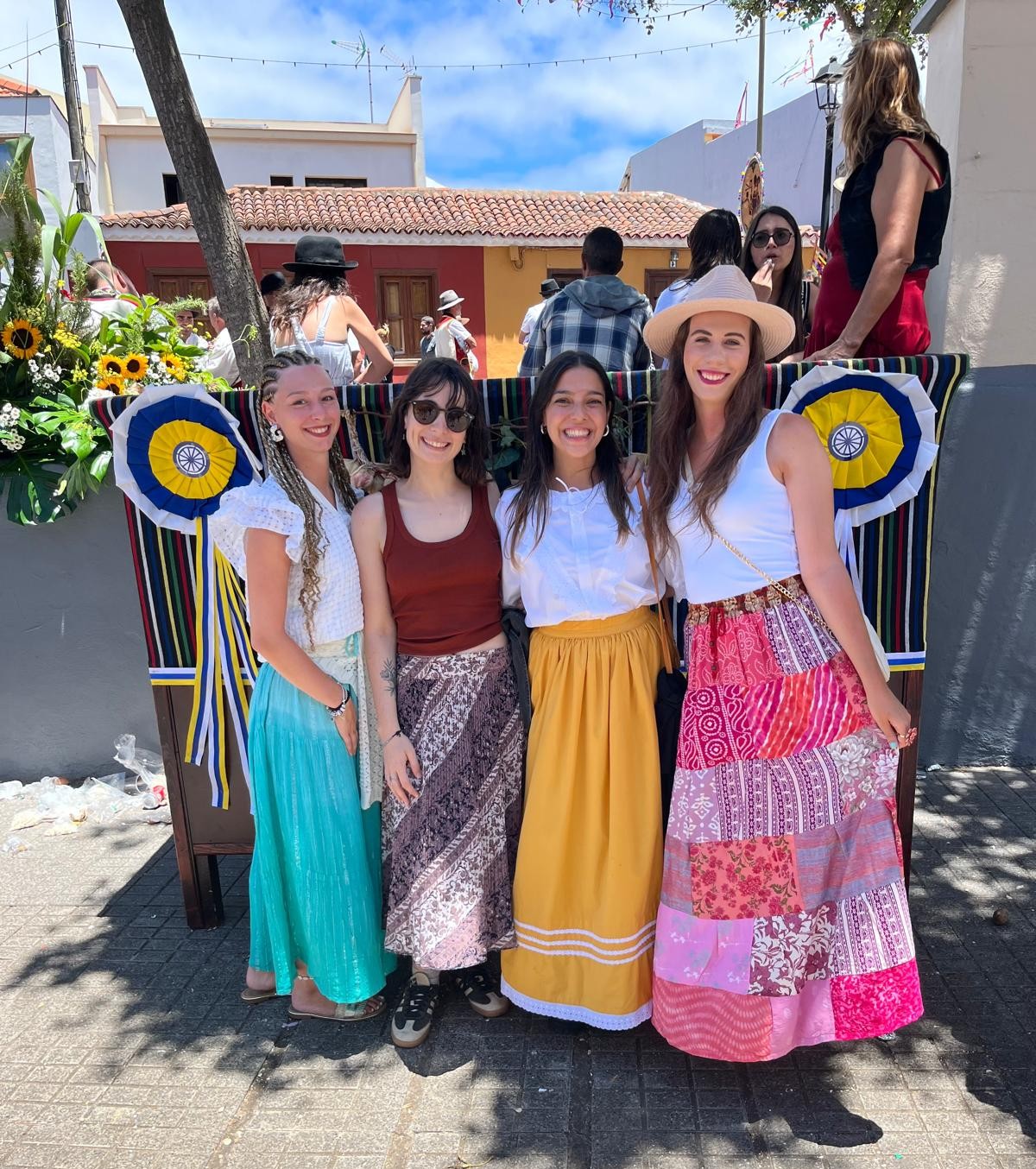
What advice would you give to students who are hesitant to apply?
Don't make excuses and go for it! (even if you're afraid). Your twenties are the best time to travel, try new things, and explore the world. Most internships last at least 3-6 months, but you can always negotiate with your employer. It's a slightly different experience than study abroad. You will work on real tasks, go to work every day, and slowly get used to the "adult life" routine. In addition, you will find out how a company in another country works, you can compare it with Slovakia and test whether you would like to work abroad after school.
How do you assess your internship overall in retrospect?
It was the best decision I could have made. The change of environment and new impulses helped me reset my mind after a demanding year of writing my thesis and preparing for my final exams. My colleagues at work really took care of me and shared their experiences with me, but I also had the space to implement my own ideas. I worked full-time as a regular employee, but at the same time I was able to participate in activities and events organized by the company during working hours.
Do you plan to stay in touch with the host organization or return there?
I don't plan to return there for work, but I remain in contact with my colleagues. I promised them that I would come back to teach them a Spanish language course.
